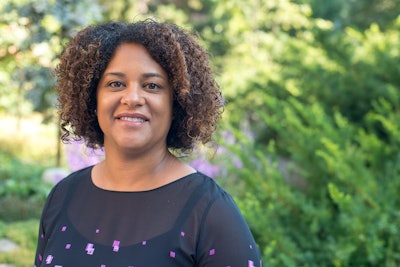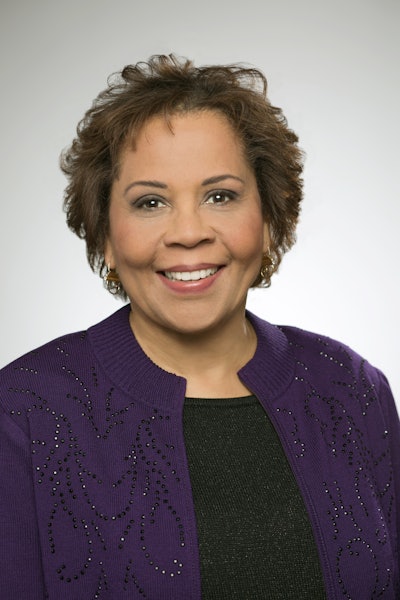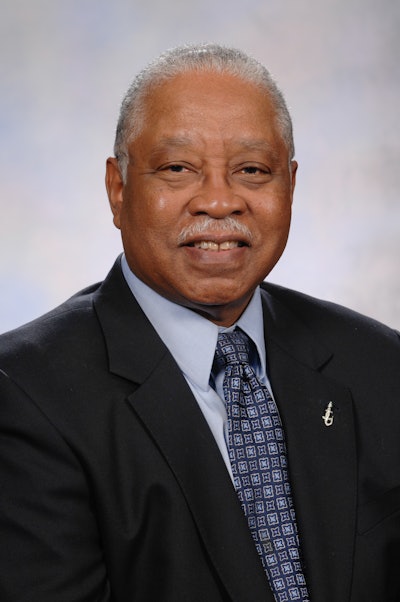Graduate schools flipped in-person courses to a remote model when the nation entered quarantine mode in March 2020. In recent months, many institutions have transitioned to in-person or hybrid course models, but the challenges posed by COVID-19 continue.
 Dr. Joy Williamson-Lott
Dr. Joy Williamson-LottStudents are struggling financially. Many have found their research stymied. Faculty face challenges of being home with their own children, trying to teach, providing their students with support and re-envisioning their own research. Students of color have been especially hard hit by the pandemic.
“Black students, in particular, are under immense amounts of stress,” says Dr. Joy Williamson-Lott, dean of the Graduate School at the University of Washington. “Not only are they negatively impacted by the pandemic — isolated, underemployed and fearful for their health and safety — they are negatively impacted by structural racism, institutional racism and interpersonal racism.
“This group, especially, needs support during these times,” she adds. “Luckily, the Graduate School already has a unit focused on serving BIPOC graduate students, and that unit stepped up its programming to meet the expanded need.”
Initial COVID-19 impact
All instruction at the University of Arkansas went remote in March 2020. Students submitting theses and dissertations could use electronic signatures and submissions. An entirely virtual process was created to clear students for graduation.
“We modified the grading policy to allow, at college/department discretion, P for passing grades and NC for failing grades; neither of these had an impact on the GPA,” says Dr. Patricia R. Koski, dean, University of Arkansas Graduate School and International Education.
Koski says new policies for emergency funds were implemented and donor engagement was ramped up to increase available funds.
Student mental health services reached out to graduate students as has the Office of Graduate Student Support, Koski says. The Graduate-Professional Student Congress has been monitoring student concerns and even held game nights to engage students. The Black Graduate Student Association had “living room conversations” to foster communication.
The University of Washington accepted electronic transcripts, provided graduate students the satisfactory/not satisfactory grading option and allowed petitions for exceptions to graduation requirements from both individual students and from programs, says Williamson-Lott. These accommodations remain in effect.
Research
Dr. Paula D. McClain, dean of the Graduate School and vice provost for graduate education at Duke University, says the pandemic disrupted graduate students’ summer 2020 plans, such as field research. It is also impacting research plans in the long-term.
 Dr. Patricia R. Koski
Dr. Patricia R. Koski“Some Ph.D. students’ research may be disrupted to the point where they may need longer than usual to complete their degree,” McClain says. “To support them, Duke developed a process by which Ph.D. students in that situation can apply for extensions to their funding.
“We have also developed a process for students to apply for exemptions to current restrictions on university-supported travel if they have a critical need,” she adds. “We adjusted our conference travel funding support so that students can use it to help cover registration costs for online conferences.”
At Howard University, students engaged in research have been allowed on campus.
“Several modules have been developed focusing on safety and health measures as well as preparation to re-enter research facilities,” says Dr. Anthony K. Wutoh, provost and chief academic officer.
“Students have been provided access and support for free COVID-19 testing as well as a daily screening app,” he adds. “Eligible students have been provided physical access to research laboratories and other facilities, upon completion of reentry requirements.”
At the University of Washington, the Office of Research has provided guidance on mitigating impacts to research activities due to COVID-19.
Dr. Henry T. Frierson, associate vice president and dean of the Graduate School at the University of Florida, says when the pandemic first hit, graduate students were not allowed on campus to do research, but as time went on, they were able to return in accordance with reentry protocols.
“There is a weekly email you get regarding test screening and things of that nature,” Frierson says.
Ongoing adaptation
“It is really impressive how resilient our graduate students have been in continuing their education and research amid disruptions,” says McClain. “At the same time, we are seeing students experience the same strain and distress that many people have been feeling during the pandemic. Graduate school can be stressful even in normal times, and the pandemic has certainly exacerbated some of the wellbeing challenges that graduate students wrestle with.”
Duke set up Blue Devils Care, a 24/7 mental telehealth service that is free to all students. The Graduate School has been in more frequent contact with various student groups to assess student needs and devise solutions.
 Dr. Paula D. McClain
Dr. Paula D. McClainBeginning with the fall 2020 semester, the University of Arkansas went back to letter grades for courses. Theses, dissertations and other graduation materials may still be submitted remotely with electronic signatures. “Demands on our emergency funds remain high,” Koski says.
Arkansas is allowing faculty and departments to choose whether to teach remotely or face-to-face. “Our Global Studies office and information technology offices have worked hard to facilitate faculty teaching hybrid courses,” says Koski. “Because of social distancing requirements, all large classes are either hybrid or remote because of a lack of enough large classrooms.”
For those Arkansas professors teaching hybrid courses, as of the spring semester they are not required to have remote students attend virtual lectures live but instead may record lectures for remote students.
In-person instruction has resumed in many labs and clinical programs at the University of Washington, but most other courses remain in the virtual space. Mental health counseling also remains virtual, says Williamson-Lott.
“When it comes to academic support, the Graduate School has created guidance on how to manage committee meetings, general exams and dissertation defenses,” Williamson-Lott says. “We’ve also held a webinar for student support staff and faculty on how to ensure progress toward degree.”
Frierson says the University of Florida’s Division of Graduate Student Affairs has developed virtual activities to keep students engaged. These include professional development and social programs. The Editorial Office, which keeps students on track with their theses and dissertations, meets with students virtually.
Permanent changes
Some online and hybrid graduate courses may remain. Koski says conversations have begun about how remote learning might be a permanent part of course offerings. “There are indeed some areas where this might be a more powerful type of instruction,” she says.
McClain says Duke is fortunate to have had deep experience with developing online and hybrid courses, having been a pioneer in developing courses for Coursera, a popular online course provider. The learning innovation team has been helping Duke faculty develop hybrid courses for several years and scaled up as demand surged in spring 2020.
To assist graduate students who work as teaching assistants or instructors for online courses, the Graduate School at Duke developed a series of online TA skills workshops, which are currently being offered. Most of Duke’s graduate courses are being offered as either hybrid or fully remote. No program in the Graduate School (this does not include professional programs) has shifted to entirely virtual courses, nor is that in the planning, notes McClain.
“There aren’t any graduate programs that made wholesale permanent shifts to an all-virtual format,” says Williamson-Lott. “I do suspect there will be courses that will be taught virtually or in a hybrid mode in the future.”
 Dr. Henry T. Frierson
Dr. Henry T. FriersonIn-person instruction has resumed at Florida, using social distancing, masks and shields where appropriate. Virtual and hybrid instruction isn’t new at the university. It has been quite popular with master’s students. Doctoral students tend to come to campus more and will likely return.
Diversity initiatives have shifted to virtual. Frierson says the increased use of virtual formats has proven quite effective and he anticipates continued use.
“We’re going to have a graduate student appreciation week and a graduate student research day that are virtual,” Frierson says. “Student organizations and meetings are virtual.
“For some of the professional development series and workshops that the graduate school provides, having it virtual seems like we reach more students,” he adds. “We’ve been doing a lot of virtual recruitment. It’s not the same as having students come on campus, but, from an efficiency standpoint of reaching larger numbers, it is a yes.”
This article originally appeared in the March 18, 2021 edition of Diverse. Read it here.


















